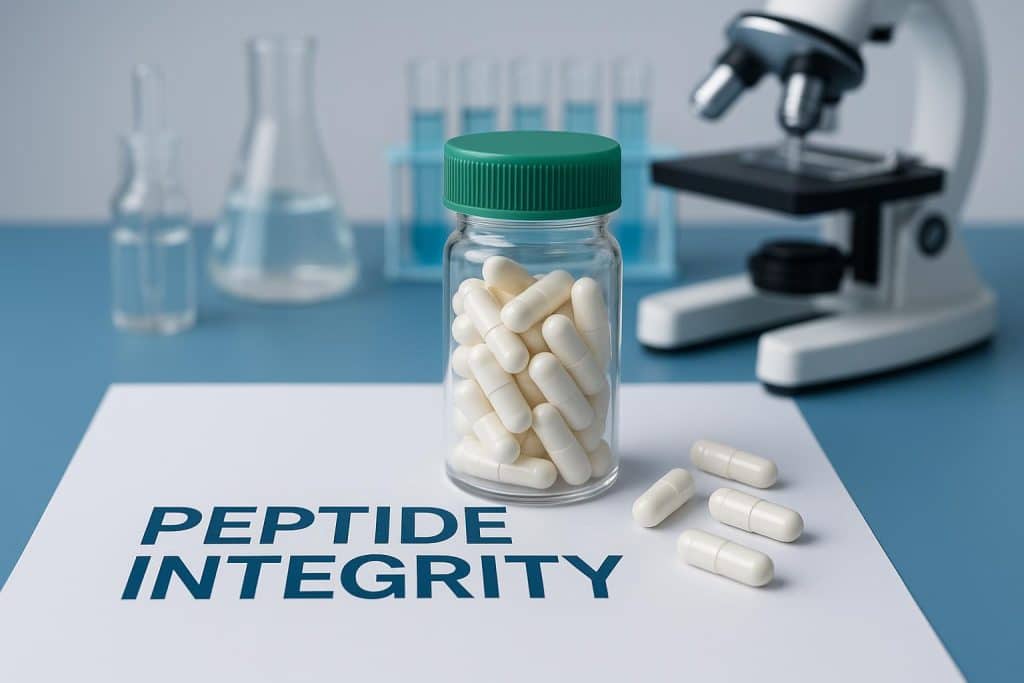As scientific inquiry advances, the demand for highly reliable research materials increases. In the realm of life sciences, peptides play a critical role in experiments and studies due to their involvement in various biological processes. Ensuring the integrity and quality of peptides is paramount, as it directly affects the validity and reproducibility of research outcomes.
Key Considerations When Selecting a Peptide Supplier
The criteria for choosing a peptide supplier go beyond basic cost-effectiveness. Reputation within the scientific community, testimonials from previous customers, and the breadth of a supplier’s catalogue indicate their ability to meet diverse research needs.
Another key factor to investigate is the supplier’s quality assurance policies. Do they offer certificates of analysis for their products? These documents validate peptide composition and purity, providing an essential checkpoint before researchers integrate the peptides into their workflow.
A supplier’s expertise in peptide chemistry and synthesis should not be overlooked, as this influences their capability to consistently deliver peptides that maintain the highest purity levels. Moreover, responsive customer service and technical support can be invaluable, ensuring that questions and concerns are promptly addressed.
Transparency regarding sourcing, manufacturing methods, and ethical considerations also plays a critical role in selecting a supplier. When safety and ethics are key, researchers might consider a supplier offering peptides designed for laboratory research, such as one where they can buy peptide capsules with confidence in the product’s traceability and conformity with industry standards.
Assessing the Purity and Quality of Peptides
The purity of a peptide directly impacts its suitability for research purposes. Research-grade peptides, for instance, generally require a high percentage of purity to ensure that experimental results are not influenced by contaminants.
Common impurities in peptide preparations can include water, residual organic solvents, or other byproducts from the synthesis process. Such contaminants can alter the functionality of peptides, highlighting the need for robust purification methods. Peptide suppliers should provide a full breakdown of purity levels for each product they offer.
Techniques such as HPLC, MS, and other analytical methods are employed to gauge peptide quality. These techniques can measure the exact mass of a peptide and confirm its identity, provide insights into purity, and help detect even trace amounts of impurities. It’s advised to request detailed purity profiles for all peptide purchases.
The Role of Proper Storage and Handling in Peptide Stability
Maintaining the stability of peptides through correct storage and handling practices is as important as sourcing high-quality peptides in the first place. Peptides are susceptible to degradation from environmental factors such as light, heat, and moisture. Appropriate storage conditions are thus essential to preserve peptide integrity over time.
Low temperatures are typically required for long-term peptide storage, with recommendations usually hovering around -20°C or lower. Additionally, guidelines often suggest keeping peptides in a lyophilized (freeze-dried) state until needed to prevent degradation. Once reconstituted, peptides may have a significantly reduced shelf life.
The handling of peptides during reconstitution also plays a role in maintaining their stability. Introduction of bacteria or improper reconstitution solvents can adversely affect the peptide. Employing best practices in laboratory hygiene and strict adherence to reconstitution protocols is therefore critical.
Each peptide may come with its own specific storage and handling recommendations, which should be closely followed. Suppliers often include this information with their products, and it is essential for research personnel to be well-versed in these guidelines to ensure experimental consistency.
Navigating Certifications and Regulatory Compliance for Research Capsules
Sourcing peptides also involves an understanding of the legal and regulatory landscape surrounding these compounds. Certifications from accrediting bodies can signal compliance with industry standards, which is reassuring for researchers needing to adhere to strict regulatory requirements.
In many countries, peptides intended for laboratory research may be subject to regulation by health and safety authorities. Ensuring that a supplier has met such regulatory requirements is an assurance of quality, and it helps protect the integrity of the research institution as well.
Furthermore, ethical certification and adherence to sustainability practices are becoming increasingly important in scientific procurement. Researchers have a responsibility to consider the wider impact of their work, and sourcing peptides from companies committed to ethical practices is a step in the right direction.
When in doubt, researchers should not hesitate to inquire about a supplier’s compliance with regulatory standards and certifications. Doing so not only secures peace of mind but also fortifies the legitimacy of the research conducted with the peptides sourced.
Overall, the quest for quality peptides demands rigorous attention to detail and an unwavering commitment to integrity throughout the supply chain. By keeping purity, stability, and compliance front and center, researchers can continue to make groundbreaking advancements with confidence in their foundational materials.
